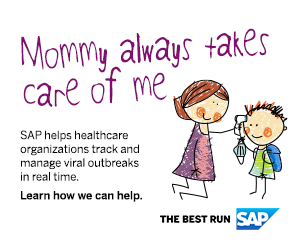
Hospitals
-
The Importance of Continuous Iteration in Health Equity Plans for REACH ACOs
Next year REACH ACOs will have to show success in developing and maintaining comprehensive health equity plans, and by kicking the can down the road they risk not knowing enough about their patient population in terms of what works better and what doesn’t. ACOs can pay in the effort of continuous iteration now or they can pay in poor health outcomes for their patients and the resulting increased costs. The choice is theirs, but one they each have to make.
-
85,000 Kaiser Workers Will Soon Vote to Authorize What Could Be the Biggest Healthcare Strike in US History
The Coalition of Kaiser Permanente Unions announced that it will soon begin conducting strike authorization votes among its 85,000 members. The coalition’s chief concern is Kaiser’s dangerous staffing levels, which members say have led to excessively long wait times, patient neglect and mistaken diagnosis. If the coalition authorizes and implements the strike, it will become the largest strike of healthcare workers in the history of the U.S.
-
Improving health in one of the most complex and costly chronic conditions
Kidney care in the U.S. needs an overhaul. Changing today’s expensive, disconnected care model requires moving from volume to value.
Misha Palecek, Chief Transformation Officer, DaVita Kidney Care
-
Hospitals, MedCity Influencers
Micro-Credentials Could Begin To Resolve the Nursing Shortage in as Little as One Month
A micro-credential/apprenticeship program can be a game changer for health-care organizations and employees alike. Health-care organizations, by putting non-traditional candidates on the payroll, are getting help faster and investing in the future.
-
Nurses’ Mental Health Is Improving, But It’s Still Far From Where It Needs to Be
A recent survey on nurses’ mental health offers some reasons for cautious optimism. The survey showed that nurses’ mental health has continued to improve since its bleakest days during the peak of the pandemic. However, most nurses said they remain unhappy with their employer’s efforts to prioritize their mental wellbeing.
-
Drug Shortages Not Only Exacerbate Healthcare Burnout But Can Also Harm Patient Care
The second quarter of 2023 ended with 309 active drug shortages, the highest total in nearly a decade, according to a new report from ASHP. One of the organization’s executives pointed out that drug shortages have two major impacts on health systems: they create a lot of extra work for the pharmacy department, and they force clinicians to make tough decisions about patient care that could potentially result in worse patient outcomes.
-
CMS Lowers No Surprises Act Fee After Court Nixes Price Hike
CMS recently announced that it will change the administrative fee that providers and insurers must pay when initiating a reimbursement dispute under the No Surprises Act — the agency is lowering the fee from $350 to $50. This move came a week after the Texas Medical Association won a court case challenging HHS over its 600% price hike on the fee.
-
HHS Launches Civil Rights Investigation Into Vanderbilt’s Sharing of Transgender Patient Data
Vanderbilt University Medical Center is under federal investigation after it turned transgender patients’ medical records over to Tennessee’s attorney general. HHS launched the investigation a couple weeks after two VUMC patients filed a class-action lawsuit against the hospital for releasing their records to the attorney general.
-
What Providers Need to Know About Fighting the Nursing Shortage Through Tech
A new Accenture report laid out considerations that hospitals should keep in mind as they adopt new technology aimed at improving nurse retention. Some of the report’s key recommendations for providers were to build a strong, cloud-based technology infrastructure and to involve nurses early on in the process of adopting a new digital tool.
-
Clinical Care Capacity Planning
Learn how to manage clinical care capacity more efficiently during uncertain times.
-
Artificial Intelligence, Health Tech, Hospitals, Legal
Senator Probes Google About ‘Premature Deployment of Unproven Technology’ In Healthcare Settings
Senator Mark Warner (D-Virginia) penned a letter to Google leadership expressing concerns about Med-PaLM 2 — the company’s generative AI tool for healthcare providers that is currently being used by Mayo Clinic and other health systems. The letter requested that Google provide more clarity about its chatbot’s training, accuracy, ethical considerations and deployment in healthcare settings.
-
How Did The 3 Biggest For-Profit Hospital Chains Perform in Q2?
HCA and Tenet reported net incomes for the second quarter, while CHS posted a net loss. All three health systems found themselves in a better financial position in Q2 2023 than they were in Q2 of last year, driven in large part by declining contract labor expenses.
-
Hospitals Still Struggling to Get Back Online 4 Days After Cyberattack on Prospect Medical Holdings
Hospitals and outpatient treatment centers in at least three states are struggling to get their systems back online following a ransomware attack waged last week against parent company Prospect Medical Holdings. Some of these facilities have partially or completely halted patient care.
-
Health Tech, Hospitals, Pharmacy
Which Drugs Are Driving Next Year’s 3.42% Increase in Hospital Pharmacy Spend?
Hospitals’ pharmacy spending is projected to rise by 3.42% next year, according to a new report. Specialty drugs, including Ozempic and Humira, as well as neurology medications are the primary drivers of this increase in pharmacy expenses.
-
Geisinger Launches Heart Failure Monitoring Program Using Bodyport’s Smart Scale
Geisinger is launching a pilot program in partnership with virtual heart failure monitoring startup Bodyport. About 200 of the health system’s heart failure patients will be using Bodyport’s cardiac scale at home — the scale uses sensors to measure a person’s metrics of heart function and body fluid status after they stand on it for about 20 seconds.
-
Health Tech, Hospitals, Startups
Rush Launches Program to Scale RPM for Chronic Conditions Management
Chicago-based Rush University System for Health recently struck a partnership with Cadence — the health system is beginning an RPM pilot using the startup’s technology platform and clinicians. Rush will enroll Medicare and Medicaid patients who have one or more of the following chronic conditions: hypertension, congestive heart failure and type 2 diabetes.































